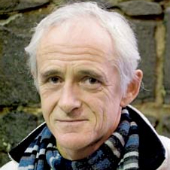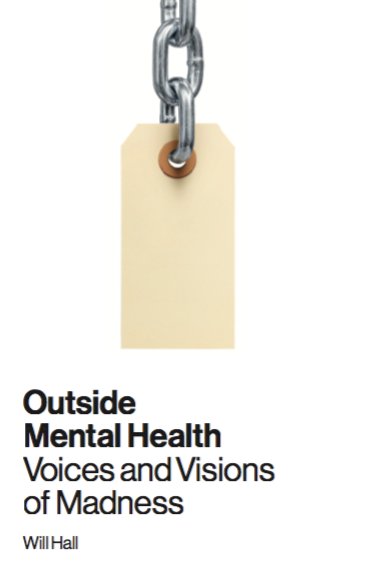Talking About Suicidal Feelings: David Webb
First Aired: 09-01-2011 -- 5 comments | Add comment

How common are suicidal feelings? Is a psychiatric illness behind suicidal despair — or a meaningful and even spiritual life crisis? Does forced hospitalization really provide help?
Suicide attempt survivor David Webb, author of Thinking About Suicide: Contemplating and Comprehending the Urge to Die, discusses how speaking openly about suicidal feelings, rather than reacting with panic and fear, is the best form of suicide prevention.
http://www.jungcircle.com/DWebb.html
http://thinkingaboutsuicide.org
Podcast: Play in new window | Download (Duration: 50:25 — 46.2MB)
Subscribe: RSS



























 Creative Commons 2.5 copyright
Creative Commons 2.5 copyright
I couldn’t help but find myself agreeing with Julie Rose and her discussion comments. I suppose the responses I have received throughout the years whenever I found myself contemplating, entertaining the way to commit suicide and even going ahead and trying to have been well meaning. However, one wonders if those who so freely feel the need to express their opinion when I am in that state of mind have ever experienced being in that place themselves. Comments such as: “Suicide is just plan being selfish!” and “Don’t you see how much pain and guilt you will cause those who care about you to experience if you do this?” tell me that in no uncertain terms they cannot relate to what I am experiencing. This isn’t to say that there may be some relevance in these comments; nonetheless, in the moment they are given their impact on me only leads me to crawl deeper into my state of despair and despondency, in turn leaving me with even more drive and determination to end my life!
I, also, know well the aggrevation of no one, especially those who work in the mental health field and spiritual community, not wanting to entertain any conversation as to why I have found myself in this state of mind, what in the world could possibly have gotten so bad that I would want to die, how I got there or if it even matters. No, pumping drugs, placing in seclusion until I come to my “senses” or telling me I just need to pray harder – these are their choices of protocol, which truthfully only makes the matter worse for me.
To Julie’s comment “meaning has no place in the crazy-making world of psychiatry” I would like to add that neither does honest, heart-felt concern exist among our family and friends. It is a sad truth indeed and one that has only served to keep me caught on the merry-go-round of being misunderstood and tangled up in the web of suicidal turmoil.
Julie wrote of certain life experiences many find themselves in when they are contemplating suicide. I would like to add to her list a few more: finding oneself without purpose and meaning in their life; realizing they are not needed, wanted, or of any importance to anyone; loneliness so engulfing there are days it is hard to even breath let alone get out of bed to “embrace” life; “well meaning” family continuing to think of them as the “elephant in the middle of the livingroom” creating ongoing distance and rejection.
Perhaps the answer is in fact speaking openly when I am experiencing suicidal thoughts and/or feelings. Unfortunately, I am left with one piece to the puzzle missing: whom to talk to.
Thank you “Anonymous June 6th, 2013”
Everything you wrote…..yes.
Ancient “something” is surfacing. Nothing sto
ps it. I am punished with tactics (isolation, avoidance) until I behave or act accordingly. To be accepted I must deny any semblance of the truth of what is happening to me. I am responsible for the disturbing effect I have on others. My existence is too much. There is no comfort or love for filth like me. I did not ask for this. It is not sadness. Nor should it be confused with fragility, on the contrary. I am capable of profound love. This room remains empty. No one speaks to me.
I hope you read this. You are right.
Excellent discussion. I’ve experienced suicidal thinking as a spiritual problem, but unfortunately, those of us who struggle with this have few options. If we tell our truth, we are not wanted in spiritual communities, which are the best safe havens and places of healing when in this state. So, whether you enter a spiritual community or a psychiatric facility, the only strategy is lying. In the spiritual community, one must lie in order to stay, and in the other, you lie so you can leave or avoid being forced to take medication.
Oddly enough, I, like some other people I’ve met, have discovered how much I wanted to live because of the desire not to be drugged, and the desire to be asked one simple question, “Why?” No one asks why. No one believes that perhaps a “simple” a thing as life circumstance might drive a person to think about death, and that, perhaps, if one found out the answer, help might be available – real help. To a person in a psychiatric facility struggling with terrible life circumstances, eg. homelessness, joblessness, domestic violence, if one inquires, you might hear, “Oh well. We don’t deal with these things. . .” Meaning has no place in the crazy-making world of psychiatry. To a psychiatrist these days, asking about the meaning of the desire to die makes as much sense as asking someone, “Why do you want to have cancer?”
On the point of being unwanted in spiritual communities. If you ask to take refuge from any Buddhist monk or Lama you cannot be refused. Buddhism unlike christianity or other religion is not an exclusionary in nature. All and any can obtain enlightenment. No one is excluded. You can be of any race, or other religion and Buddhist.
Pingback: The Temptation of Certainty: David Foster Wallace, Suicide and Psychiatric Drug Withdrawal - Mad In America